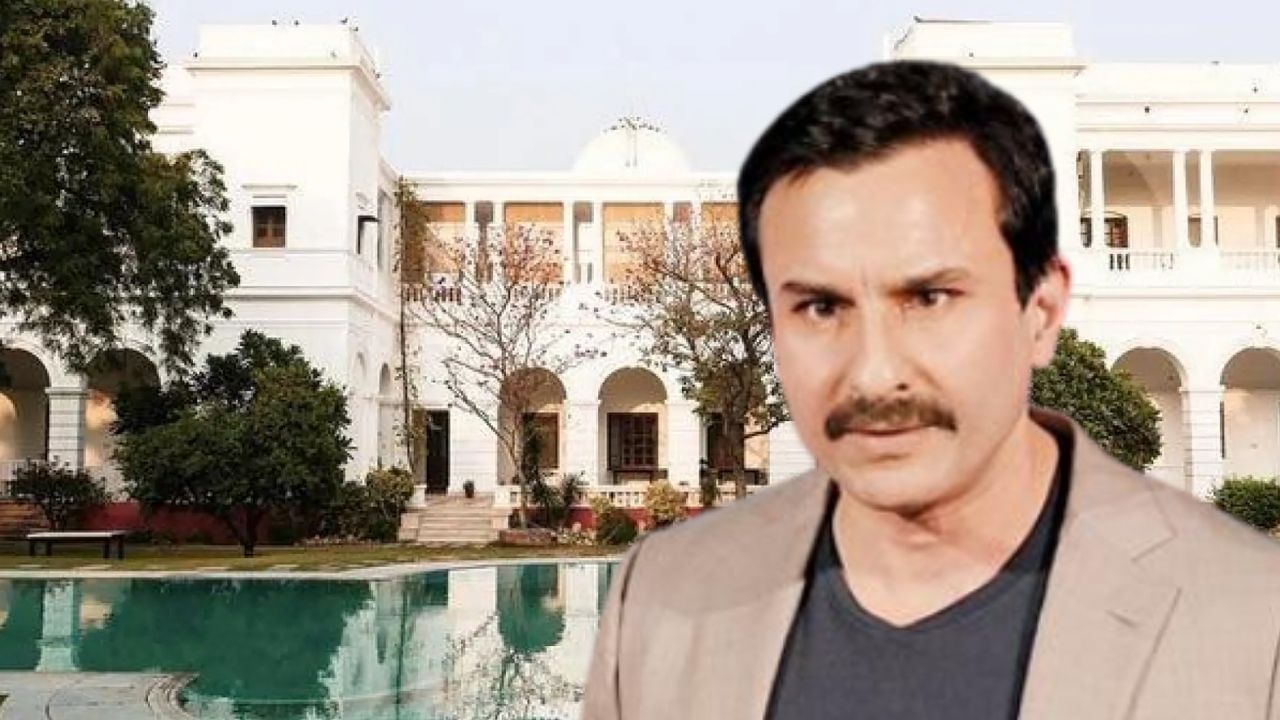Saif Ali Khan Bhopal Property Dispute
Saif is not taking the name of ending difficulties for Ali Khan. His 15,000 crore family property in Bhopal is now in danger. The Madhya Pradesh High Court dismissed the petition of Saif and his family on 30 June. Meaning, the fight to save this big legacy has become more difficult. Earlier, a lower court ruled in the year 2000 that Saif, his mother Sharmila Tagore and sisters Soha-Sab are the real owners of this property. But now the High Court has overturned that decision and these old disputes have started again. Apart from this, another case is also going on, in which it is yet to be decided whether this property comes under the purview of ‘enemy property’. Overall, this major legacy of Saif is still stuck in a very legal confusion.
What is this whole controversy?
Actually, this dispute started with a decision of 2000. At that time a lower court ruled that Saif Ali Khan and his family are the right legal owner of the property of Nawab Hamidullah Khan, the last Nawab of Bhopal. But some other families of Nawab were not happy with this and they challenged this decision. He said that this property should be distributed according to Muslim personal law and not according to the rules of the royal family.
Those people also say that the daughter of the Nawab, who is Saif’s grandmother Sajida Sultan, was wrongly deserved this property alone. Now the Madhya Pradesh High Court has canceled that old decision and said that the lower court will have to see this case again and will have to give a new opinion on it within a year.
What is the matter of ‘enemy property’?
Along with this legacy controversy, there is another major legal hurdle. These properties of Bhopal have been marked as enemy property. In the year 2014, the Custodian of Animi Property issued a notification to bring these properties under the Enemy Property Act, 1968. The basis of this was that Abida Sultan, the eldest daughter of Nawab Hamidullah Khan, had taken citizenship of Pakistan after partition and left India.
Since Abida was considered a heir to the property, the property of his share was declared as enemy property. According to this law, such assets have no right to their Indian descendants. Saif challenged this notification in court in 2015 and achieved a temporary stay. But on 13 December 2024, the High Court dismissed his petition and also removed the stay.
The court gave 30 days time to Saif and his family to appeal, but it is not clear whether he appealed or not. Now this deadline is over, after which these properties have been legally opened for the government’s acquisition. Bhopal district administration may soon start the process of taking possession of these properties, provided no new appeal is accepted.
What properties are at stake?
The dispute includes many prized properties from Bhopal and its surroundings, which have emotional significance not only for the economic, but also for Saif’s family. These include:
- Noor-u-Sabah Palace: Now this is a luxury hotel.
- Flag Staff House: Where Saif spent his childhood.
- Dar-in-Salam, Habibi Bungalow, Ahmedabad Palace and Kohe-Fija Property.
The total price of these properties is estimated at around Rs 15,000 crore, which makes it one of the biggest heritage disputes in the country.
What is enemy property law?
Enemy property means a property that belongs to an enemy country, its relatives or the company of that country. After the 1965 Indo-Pakistan fight, the government enacted a law in 1968, with the claims of the abandoned property of those who went to Pakistan or China after the war. Under this law, people who moved to Pakistan at the time of independence or later taken citizenship (citizenship), their property in India can declare enemy property.
In the year 2017, there was an important amendment in this law, which was called the Enemy Property (Amendment and Verification) Act. This made the law more strict. According to the new rules, Indian heirs have no right over such assets, even if their citizenship is Indian. Also, in addition to land and buildings, shares, jewelry and financial properties were also included by increasing the scope of this law. The most important thing, this amendment also applies to old matters, due to which many old claims and settled disputes were also canceled.
What is Saif’s connection with this property?
Saif Ali Khan got these properties through her grandmother Sajida Sultan, who was the second daughter of Nawab Hamidullah Khan. Sajida was married to Iftikhar Ali Khan Pataudi, who was Saif’s grandfather. When Abida Sultan went to Pakistan and left Indian citizenship, Sajida was made Nawab Begum of Bhopal. In 1962, the Central Government issued an order to declare Sajida the only heir to the Nawab’s private properties. These properties later got Saif’s father Mansoor Ali Khan Pataudi and then Saif and his family were considered as its owners.
